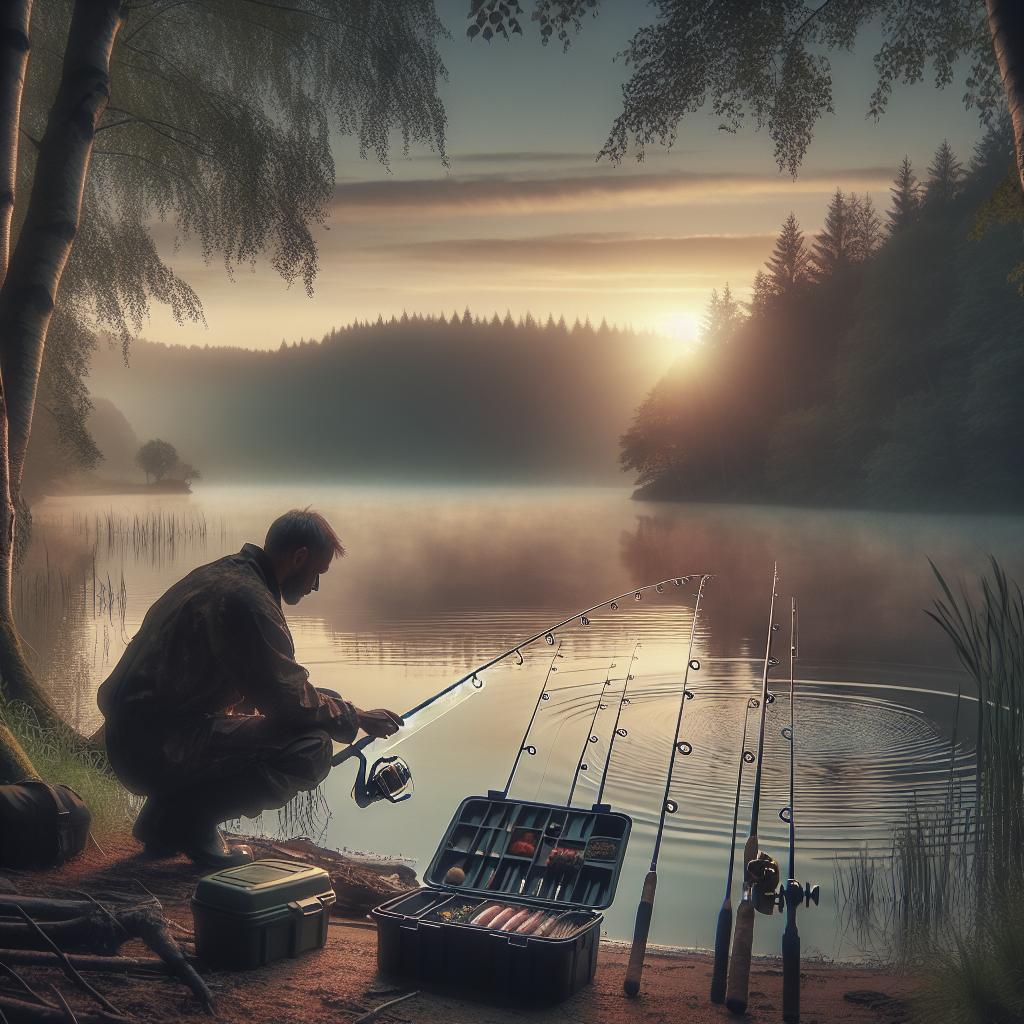“`html
How to Clean and Maintain Your Fishing Equipment
Taking care of your fishing gear is essential for enjoying a great fishing experience. Regular cleaning and maintenance can prolong the life of your rods and reels, ensuring they perform optimally whenever you head out to fish. This comprehensive guide will walk you through the best practices for cleaning and inspecting your fishing equipment, providing expert tips on storage and addressing common FAQs. With specific advice on how often to clean your gear and what products to use, alongside insights into the broader fishing landscape such as surf fishing in the Carolinas and oyster habitat restoration, this blog post is your go-to resource for maintaining your prized fishing gear.
How often should you clean your fishing rods and reels?
The frequency of cleaning your fishing rods and reels largely depends on how often you use them and the environment in which you’re fishing. If you’re venturing into saltwater environments, it’s wise to clean your gear after each trip. The salt can be corrosive, leading to rust and deterioration if not promptly washed away.
For freshwater fishing enthusiasts, a monthly cleaning session is typically sufficient unless you’ve been fishing in particularly muddy or dirty conditions. Regular checks and cleanings will help ensure that your equipment remains in excellent condition, reducing the risk of malfunction during your next fishing adventure.
What are the best cleaning solutions for rods and reels?
When it comes to selecting cleaning solutions, avoid anything too harsh as this can damage your gear. Warm water mixed with a mild dish soap works well for removing dirt and salt. Specialty fishing gear cleaners are also available and can offer added protection with corrosion inhibitors.
Lubricants specifically formulated for fishing reels are recommended to keep the internal mechanisms running smoothly. Avoid household oils or general-purpose lubricants as they may not provide the necessary protection against moisture and salt exposure.
How to Clean Your Reels
Begin by loosening the drag and rinsing the reel under fresh water to remove any surface contaminants. Use a soft cloth or sponge with your chosen cleaning solution to meticulously clean the entire surface, paying particular attention to crevices where dirt might accumulate.
After drying the reel thoroughly, apply a small amount of reel oil to the handle and other moving parts. Reassemble any components you’ve dismantled, keeping all parts lubricated to prevent rust and ensure smooth operation.
How to Clean Your Rods
Rods are generally easier to clean than reels. Begin by wiping the rod’s entirety with a clean, damp cloth to remove dirt and grime. Use a soft-bristled brush to carefully clean around the guides and reel seat, ensuring that no dirt is left behind.
For an added layer of protection, apply a rod wax or polish to enhance the rod’s finish and protect it from the elements. Be sure to rinse and dry the rod properly before storing it away to prevent any moisture damage.
Cleaning Material List:
- Soft cloth or sponge
- Mild dish soap or specialized fishing gear cleaner
- Soft-bristled brush
- Reel oil or specialized lubricant
- Rod wax or polish
How often should I inspect my rods and reels for damage?
Routine inspections are a vital part of maintaining your fishing gear. Ideally, you should inspect your rods and reels before and after each fishing trip. Look out for any signs of wear, such as cracks or corrosion that could compromise performance.
Pay special attention to the guides, reel seats, and handles as these are areas prone to more rapid degradation due to constant use and exposure to harsh conditions. Regular examinations can also help you identify any damage early on, allowing for timely repairs.
Should I replace my gear every season?
Whether you need to replace your gear every season depends on several factors, including the quality of your equipment, how often you use it, and how well you maintain it. High-quality, well-maintained gear can last several seasons.
However, if you notice that your rods or reels are no longer performing as well as they should, it might be time to consider replacing them. Seasonal upgrades can also be driven by advancements in technology, offering better performance and durability.
Tips on Storing Your Fishing Rods and Reels
Storing your fishing gear properly extends its lifespan. Store your rods vertically if possible, to prevent warping. Keep them in a cool, dry place away from direct sunlight to avoid fading and weakening of the materials.
Your reels should also be stored with the drag loosened to relieve any tension on the internal components. Consider using reel covers for added protection against dust and scratches, ensuring they are ready for your next fishing adventure.
Frequently Asked Questions
Many fishing enthusiasts often wonder about best practices when it comes to maintaining their equipment. Common questions include appropriate cleaning frequencies and how to store gear properly during off-seasons.
Another frequent inquiry involves the lifespan of rods and reels; knowing when to replace them can help you make informed decisions about your fishing investments. By understanding and anticipating these points, you’ll be better equipped to enjoy this hobby with well-maintained gear.
Gearing Up For Surf Fishing Season In The Carolinas
Surf fishing in the Carolinas is a popular pastime, offering beautiful coastlines and excellent fish diversity. Preparing your gear for the season involves making sure everything is clean and in perfect working order. Regular maintenance ensures you’re ready to tackle the waves and catch impressive fish.
“If We Don’t Have Seagrass, We Don’t Have a Bay:” The State of Florida’s Largest Estuary
Fishing enthusiasts are closely watching the health of seagrass in Florida’s estuaries, as it plays a crucial role in supporting marine life. The connection between seagrass health and fishing success underscores the importance of conservation efforts within the angling community.
Shrimping in the Lowcountry: What You Need to Know!
Shrimping season is a much-anticipated event in the Lowcountry. If you’re planning to participate, ensure your equipment is well cared for. From nets to traps, every element of your gear needs attention to avoid technical hiccups during the peak shrimping months.
MWRs: The Future of Oyster Habitat Restoration
Marine Worm Reefs (MWRs) are playing an increasingly important role in restoring oyster habitats, which are vital for numerous fish species. Anglers can support these initiatives by staying informed about ecosystem health, which impacts fishing quality and biodiversity.
Summary of main points
| Topic | Details |
|---|---|
| Cleaning Frequency | Clean saltwater gear after each use; freshwater monthly |
| Cleaning Solutions | Use mild soap or specialized cleaners; avoid harsh chemicals |
| Reels Maintenance | Rinse, clean thoroughly, and lubricate moving parts |
| Rods Maintenance | Wipe with damp cloth; polish for protection |
| Inspection Regularity | Inspect gear before/after each use |
| Gear Replacement | Based on performance and innovation developments |
| Storage Tips | Store rods vertically; keep reels covered |
Leave a Comment
We’d love to hear about your own tips and experiences with maintaining fishing equipment. Leave a comment below to join the conversation!
“`


